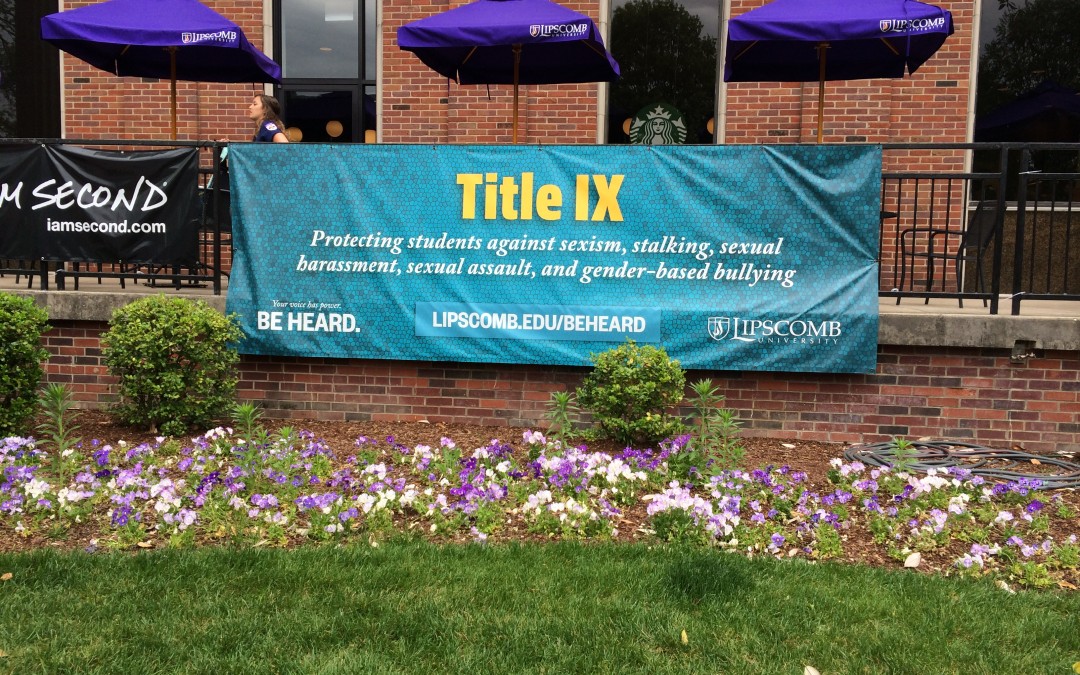During Sexual Assault Awareness Week, students had the opportunity to share their thoughts and personal stories about sexual assault.
One of the ways was through the prayer walk Thursday night. Graduate student Pieter Valk, who helped plan the prayer walk, explained the purpose behind the event.
“So the big hope with this Take Back the Night event was a first step in giving students a public way to share about their experiences, share about their thoughts and even their anger, their sadness around this, and around the brokenness of our society with this,” Valk said.
“And then a way for us to take action even more and to go across campus and pray for this, as you can imagine, like spots of little hallowed ground across campus where we can ask for God’s blessing on this campus and the work that’s being done.”
Valk said he was pleased with how the event turned out.
“I think we were hoping that it would be a small group of students that really wanted to be here and that would really engage and share about their experiences and really take part in the prayer and we’re really happy that there was that participation,” he said.
The event was the culmination of Lipscomb’s first Sexual Assault Awareness Week, in which a team of students led by Lipscomb Title IX coordinator Kathy Hargis sought to make students aware of the resources Lipscomb provides to survivors and bystanders of sexual assault and to raise students’ awareness of the problem.
“The whole issue of Title IX on college campuses has been really huge, really in the last several years,” Hargis said. “So I would say that we hope that our demographics are a little bit different, but we don’t want to be naïve enough to think that things like that never happen at a Christian school. We know that by statistics that’s not true. So we want to be very diligent in making everyone aware.”
In addition to Take Back the Night, the week featured signs posted around campus with statistics about sexual assault and information about Lipscomb’s policies and services.
Several of the signs focus on the amnesty policy for students reporting sexual assault. The policy states that survivors or bystanders who report an instance of sexual assault will be immune from other Lipscomb policy violations they may have committed at the time of the incident.
“We want to get to the bigger issue of some type of sexual misconduct, not so much maybe something else that might deal with drinking or something along those lines,” Hargis said.
Hargis has found that many students have not heard of the policy and hopes that the signs will inform students.
Another important feature of the week was the Campus Sexual Climate Survey. Now in its second year, the anonymous online survey helps the university to gauge how frequently sexual assault, stalking and gender based bullying occur between Lipscomb students. Students can participate in the survey by going to lipscomb.edu/beheard.
The week also emphasized the role of the University Counseling Center in giving survivors a secure space to talk about their experiences and to receive counseling.
If a student needs to report an incident of sexual misconduct, he or she can contact Hargis at kathy.hargis@lipscomb.edu. Students can also report anonymously with the “TIPS” link in the lower right corner of the lipscomb.edu homepage.
Students may also wish to share their experiences confidentially with the Counseling Center, the Health Services Clinic or with Campus Ministry.

